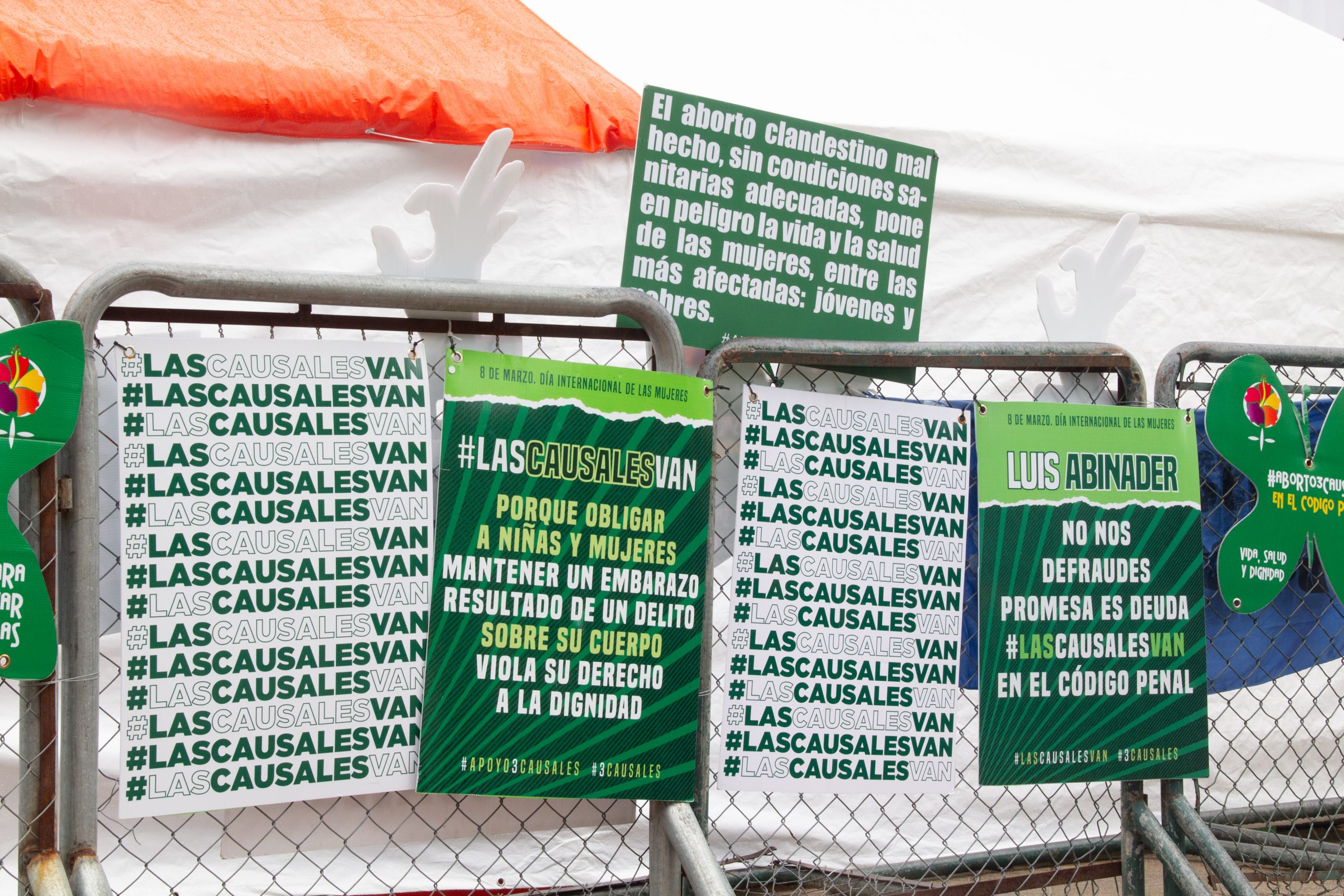The three causals
It has been four weeks now since a group of protesters set up camp in front of Dominican Republic’s Palacio Nacional. The group has been posted there in hopes of getting the government to include what are being referred to as “the three causals” in the Dominican penal code.
The three causals call for the decriminalization of abortion in three cases; when the mother’s life is at risk, when the fetus has life-threatening conditions and when the pregnancy is a result of rape or incest.
The movement has received support from various government officials such as Milagros Ortiz Bosch, general director of ethics and governmental integrity, Antonio Taveras, senator, Dilia Leticia Jorge Mera, administrative vice-minister of the presidency, and José Horacio Rodríguez, deputy, among others. Waldo Ariel Suero, the president of the Dominican Medical Association(DMA), has also demonstrated support, alongside Senén Caba, DMA ex-president.
The cause is also supported by Dominican celebrity Nashla Bogaert who, in a video posted on the official three casuals Instagram page (@rd3causales), expressed her support for the movement.
However even with the large amount of support for the inclusion of the three causals in the penal code — which is set to be updated — certain groups are still adamantly protesting against it.
On March 27 there was a march organized in celebration of the day of the “child to be born.” During the demonstration pro-lifers drove their cars throughout the city with blue clothes, flags, and signs some which read “RD es PROVIDA,” translating to “Dominican Republic is pro-life” in English. Others read “Salvemos las dos vidas” which means “Let’s save both lives,” in reference to the first causal. The march was called the “Marcha Celeste” — “celeste” meaning both a light blue colour and celestial, as in from the heavens.
An invite to the march, sent by the organizer, the Archdiocese of Santo Domingo, stated that one of the purposes was to “send a strong and clear message that we are a country that protects and defends life in all its stages.” The march received support from multiple churches, not just catholic ones.
Despite the opposition from the Catholic Church, other religious groups and select senators, the three causals camp is currently still in front of the Palacio Nacional. Just this week they have hosted a press conference, a guest speaker panel, and a movie showing. The camp is supposedly set to stay until the causals are effectively introduced into the penal code. The camp is open to the public and people are free to attend their activities and show their support.
Photographs courtesy of Amanda Defillo
